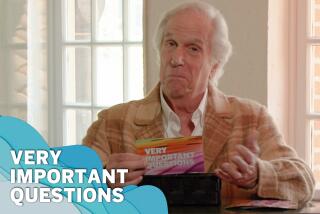The Houses of Children: COLLECTED STORIES by Coleman Dowell with a postscript by Bradford Morrow (Weidenfeld & Nicolson: $14.95; 208 pp.)
“The Houses of Children” is the posthumous collection of short stories by Coleman Dowell, a Kentucky-born writer who committed suicide in 1985. It marks the first time any of his several dozen short stories have been presented in book form.
Dowell selected the stories himself in July, 1985, just a year after renouncing writing altogether. A month later, the 60-year-old novelist-playwright-composer-lyricist-free-lance model jumped to his death from his New York City apartment.
Dowell has always been considered a writer’s writer. This collection makes that phrase his epitaph. His prose ranges from enigmatic metaphor to brilliant epiphany. As in his previous five novels, Dowell demonstrates a love of words for their own sake. The sheer density of his prose is at times beyond deciphering.
In “The Houses of Children,” Dowell sets his eyes on the violent and the lurid in modern life: the insane, the senile, the cannibal, the hunchback, the loner, the freaks. He looks at these not with the judgments and pronouncements of the adult world but with the empathy of a youthful compatriot.
His subjects are children of all kinds: the child of the apocalypse, the child of a field mouse, the child of a river; the childhood of the retarded, the childhood of the abandoned, second childhood.
Though Dowell is often compared to others in the Southern school--Flannery O’Connor, William Faulkner, even Tennessee Williams--this collection is more reminiscent of Hemingway’s “In Our Time.” Like Nick in those stories, Dowell’s boy narrators see and record, but do not yet have the power to understand what they see.
In “Wool Tea” the child narrator, known only as the Kid, finds himself captivated by the woman who has seduced him as a joke and who gave his brother the sexual disease that has sent him to a sanitarium. Similarly, the boy-observer in “Writings on a Cave Wall” records his cannibalistic world as placidly as he recalls eating his sister’s baby. Later, when his mother brings him some meat and it appears he may be the next subject for his family’s hearty appetites, he muses, “It will be fitting. As a babe I fed upon her.”
Repeatedly, the child’s idealized vision of the world is destroyed by adult reality. The boy in “The Great Godalmighty Bird” learns as an adult that the world sees the grandmother he loves as a disfigured hunchback, a freak.
Nor is there room for youthful romantic notions. In “If Beggars Were Horses” Marriott carries his wife over the threshold into his mother’s house “watching himself staggering under bride-weight . . . obviously someone as increasingly heavy as she could hardly be a figment of his longing imagination.”
At times, the author’s artifice is too clearly visible. We see the stitching, not the tapestry, as the characters take a back-seat to the writer. Thus, despite some powerfully evocative prose, “My Father Was a River” comes off as an author’s exercise; “Singing in the Clump” seems an experiment in point of view; and “Ham’s Gift,” in which an abandoned child awaits an imaginary kingdom come, fails through a nearly incomprehensible ending.
Dowell is successful when his gaze is fixed on character rather than form, as it is in “Mrs. Hackett” and “In the Mood.” The first story charts a woman’s descent into second childhood propelled by her wildly abusive lesbian daughter.
“In the Mood” is the author’s answer to the apocalyptic vision: Johnny returns from the war and ends up, broken-nerved, in a mental hospital because he dare not reveal to his family his new identity: He is the singer Glenn Miller.
His aunt Mary is Johnny’s civilian counterpart who faces the horrors of modern non-war: life, death, aging, time. Mary has also forged a new identity through a divorce, face lifts, a new life in California. But she is betrayed by her own hands, literally, and so she has taken to wearing gloves even to sleep, to somehow shut out the signs of aging.
Yet where Johnny finds peace is in his insanity, Mary is hounded by her unavailing quest to stop time. In the end, Mary faces her enemies and Johnny’s in a hallucinatory dream that recalls Hemingway’s “our nada who are in nada” dialogue in “A Clean, Well-Lighted Place.”
“Enemies are as strong as God,” he writes. “We give them their strength because we cannot see them; the strength of the unknown, the unseen, the suspected. When we pray--when we pray in battle--we pray to our enemies as well as to God--’Miss us this time, spare us this time.’ Because we pray to them, they become God to us. When we kill them . . . we know it is God we have killed.”
Like Hemingway, Dowell is saying: If war doesn’t get you, if a cannibal, sexual disease, or being a freak of nature doesn’t get you, just wait, life itself will get you in the end. Both authors, it seems, said it not only with their work, but with their lives.
More to Read
Sign up for our Book Club newsletter
Get the latest news, events and more from the Los Angeles Times Book Club, and help us get L.A. reading and talking.
You may occasionally receive promotional content from the Los Angeles Times.







